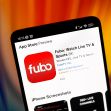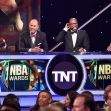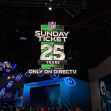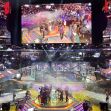On January 11th, U.S. District Judge Philip Gutierrez ruled that the National Football League (NFL) must confront a multibillion-dollar trial in February, challenging the exclusive licensing of out-of-market game telecasts. This pivotal case, which has been ongoing for eight years, alleges that the NFL and its 32 teams have violated antitrust laws by bundling broadcasting rights and limiting the availability of out-of-market games to a single provider, currently Google’s YouTube, through the Sunday Ticket package.
The lawsuit alleges that the NFL, in collusion with its member teams, has created a monopoly over the telecasts of out-of-market games. This arrangement, plaintiffs argue, has led to inflated prices for consumers who wish to access these games via the Sunday Ticket subscription. The legal battle is not just about the high costs but also about the potential stifling of competition that could have emerged had teams been allowed to stream their games online individually.
Judge Gutierrez's ruling is significant as it counters the NFL's stance that its teams, not being direct parties to the DirecTV deal, cannot be implicated in the alleged conspiracy. The court highlighted that the NFL, through agreements with CBS and FOX, owns the copyrights of the game telecasts, which it then licenses out. This arrangement, according to the court, could be seen as anticompetitive.
If the plaintiffs succeed at trial, the consequences for the NFL could be substantial. Not only could they face damages estimated at $6.1 billion, but they might also be barred from continuing their current practice of exclusively offering out-of-market games through a single provider. This could potentially revolutionize how NFL games are broadcasted, opening up new avenues for individual teams to market their games.
A key aspect of this case is the interpretation of the Sports Broadcasting Act (SBA) of 1961. While the NFL argued that this act grants them an antitrust exemption, the court disagreed, stating that the SBA does not apply to contracts that restrict competition for paid telecasts.
As the trial date of February 22 approaches, the NFL and its fans are bracing for a decision that could reshape the way football games are broadcast. The outcome of this trial will not only affect the NFL and its business model but could also set a precedent for how sports leagues manage their broadcasting rights in the digital age.






